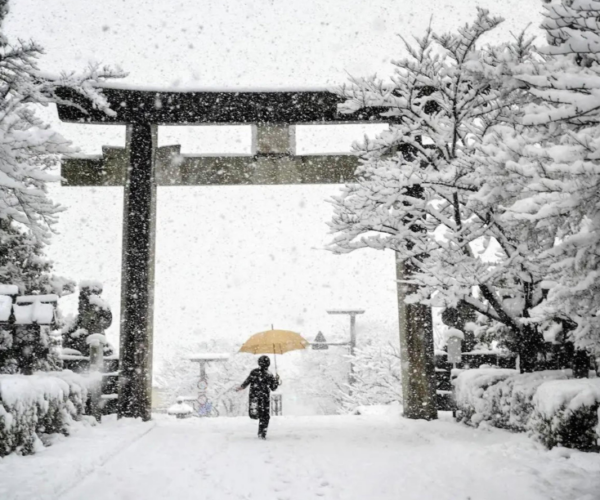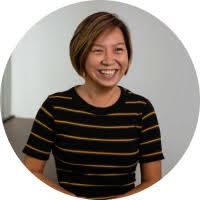Please introduce yourself and where you’re from!
Hi, I’m Shuying from Singapore.
Where and what did you study?
I majored in Psychology at the National University of Singapore. I also did a one-year exchange in Kyoto University where I studied Psychology, Japanese language, as well as a a variety of Liberal Arts and Sciences subjects related to Japan.
Where were you placed on JET and for how long?
I was placed in Sapporo city from 2010-2012.
What is your current career?
I am a User Experience (UX) consultant, with a strong interest in environmentalism and marine conservation.
What were some memorable experiences you had on JET and/or how did the JET experience as a whole shape you to who you are today?
How did JET help you in achieving your current career pathway or any professional endeavors?
I’ll answer Q5 & 6 together. I think JET impacted my career and personal development in 2 major ways.
First of all, the exposure to a foreign culture and language taught me to be more versatile and more adaptable to different ways of working – from working with more experienced but conservative teachers who may not be so opened to working with ALTs, to having to build rapport with rowdy students who are not interested in learning English at all, and having to collaborate with ALTs from different countries and different styles of teaching. With my honed international relations and communication skills, and understanding of the different cultures and working styles, I was able to land jobs in Japanese companies like Panasonic and trippiece.com (a Japanese start-up) when I returned to Singapore. These jobs continue to expose me to different challenges in understanding and managing different management and customer expectations. My experiences in JET and the Japanese companies have honed my skills in active listening and taught me to pick up on other people’s emotions and experiences easily. Today, I am able to put these skills into use as a UX consultant. A big part of my role is conducting user research where I need to conduct in-depth interviews or observation studies to understand users and consumers.
Second, and on a more personal level, my life in Japan has made me more environmentally conscious. The following is something I wrote for JETAAi.
“When I first moved to Japan, one of the first things that struck me was how I can hardly find any trash bins outside! Coming from Singapore, where we have bins everywhere, at any escalator landings, lift lobbies and bus stops, it was a great inconvenience for me to have to hold on to my trash. I later learnt that this is due to the waste separation requirements in Japan. I was even more surprised to learn that some areas are so strict that you have to clean out your milk cartons or sort out your plastics by grade! I also thought it was really smart that residents need to pay to buy specific plastic bags for trash collection, indirectly making them pay for the trash removal services. In school, I also noticed how the students neatly fold up the milk carton boxes after lunch time, and recycle their PET bottles, separating the bottles from the caps. Soon, the mottai-nai culture grew on me, and I became aware and appreciative of buying and eating just enough, so as to generate less waste and be more environmentally conscious. This value became a part of me even as I left JET and moved back to Singapore.”
Today, as an avid scuba diver, I am participating actively in clean-up programmes locally, as well as in a Reef Conservation Programme in Thailand, where we conduct ecological monitoring surveys, build and install artificial reefs and run outreach programmes to educate the public and other tourists. I found this form of diving much more meaningful than recreational diving. I began to see and understand so much more about the reefs, the marine life and the impacts of human activities.
Do you have any advice for JETs who might be looking into a similar pathway after their time on the program?
For JETs who are looking to go into the UX field,
- Make use of your experience in Japan, your understanding of a different language and culture to set yourself apart from competition.
- Demonstrate your adaptability and flexibility in working with different people.
- If you are new to UX, there are a lot of online resources, workshops and forums for self-learning.
- Japan has a great start-up community; see if you can join any groups for design challenges, projects or just to exchange ideas and feedback. It helps to build understanding of the Japanese user.
- Look for start-ups that need an English service, or are looking to venture overseas, and offer your skills to help them understand a different market, or design a UI for overseas.
- Lastly, if you have done a couple of UX projects, especially when you’re in Japan, build an online portfolio.
Shuying was an ALT in Sapporo City from 2010-2012, where she enjoyed the great outdoors; snowboarding in winter and hiking in summer. After JET, she went on to work as a business developer in Japan and Singapore organisations before moving into User Experience Design. She aspires to contribute to marine conservation through influencing the people around her and building better digital products to raise awareness. You can reach her at https://www.linkedin.com/in/yao-shuying/




